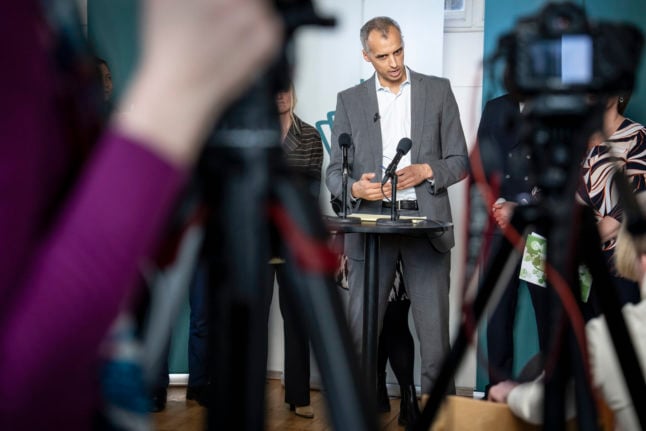The spokesperson for children and education with the Moderate party, Rasmus Lund-Nielsen, last week told broadcaster DR’s radio programme Radio4 Morgen that he thinks elementary schools (folkeskoler) should forbid children from having their mobile phones with them during school hours.
“Telephones are simply something that are disruptive because we are used to using them for entertainment, gaming and social media. A lot of things that have nothing to do with what we do at school,” he said on the programme.
Lund-Nielsen, who has a background in psychology and has written a book about the effect of screen use on development, noted that there had already been a number of successful attempts by schools to cut out smartphone use.
“It is certain that there is a link between increased screen time and unhappiness in children. If you see your friends with their noses buried in their screens at break time, that makes it difficult to makes good relations with each other,” he said.
READ ALSO: Schools in Denmark favour rules on mobile phones (2018)
The politician from the Moderates later told broadcaster TV2 that “there is evidence [mobile phones] hinder concentration”.
“Just having it next to you reduces your cognitive abilities. That’s a problem when we want to challenge our students at a high level,” he said.
Lund-Nielsen’s view is currently his own personal stance and not an official Moderate – or government – policy.
He told TV2 it was “important to start the debate”.
Representatives from school associations appear sceptical about the viability of removing phones from classrooms entirely.
“We can’t deny that they [mobile phones] will be part of our routines for the rest of our lives. Although we know they can be disruptive, we have to find out how they can be a resource for us, and a ban would not be the right choice for this,” Marie Holt Hermansen, head of the organisation for elementary school students, Danske Skoleelever (DSE), told TV2.
A spokesperson for upper secondary schools (gymnasier) called the idea “naïve”.
“We have to educate ourselves to be citizens in a modern world controlled by technology, and at school we must learn to control ourselves and put our devices aside when we need to concentrate. I trust us young people to generally be able to do that,” Madeleine Steenberg Williams, head of Danske Gymnasieelevers Sammenslutning (DGS), told TV2.
Lund-Nielsen told the broadcaster he would listen to other ideas and that his stance over a possible ban was not “set in stone”.
But a political ban on phones would prevent teachers from having to enforce policies against devices in classrooms, he noted.
“Many schools do not yet have mobile phone policies, and a ban from the state could be a good way forward in this case. [Students] fortunately have a lot of time outside of school in which they can use their phones,” he said.



 Please whitelist us to continue reading.
Please whitelist us to continue reading.
Member comments